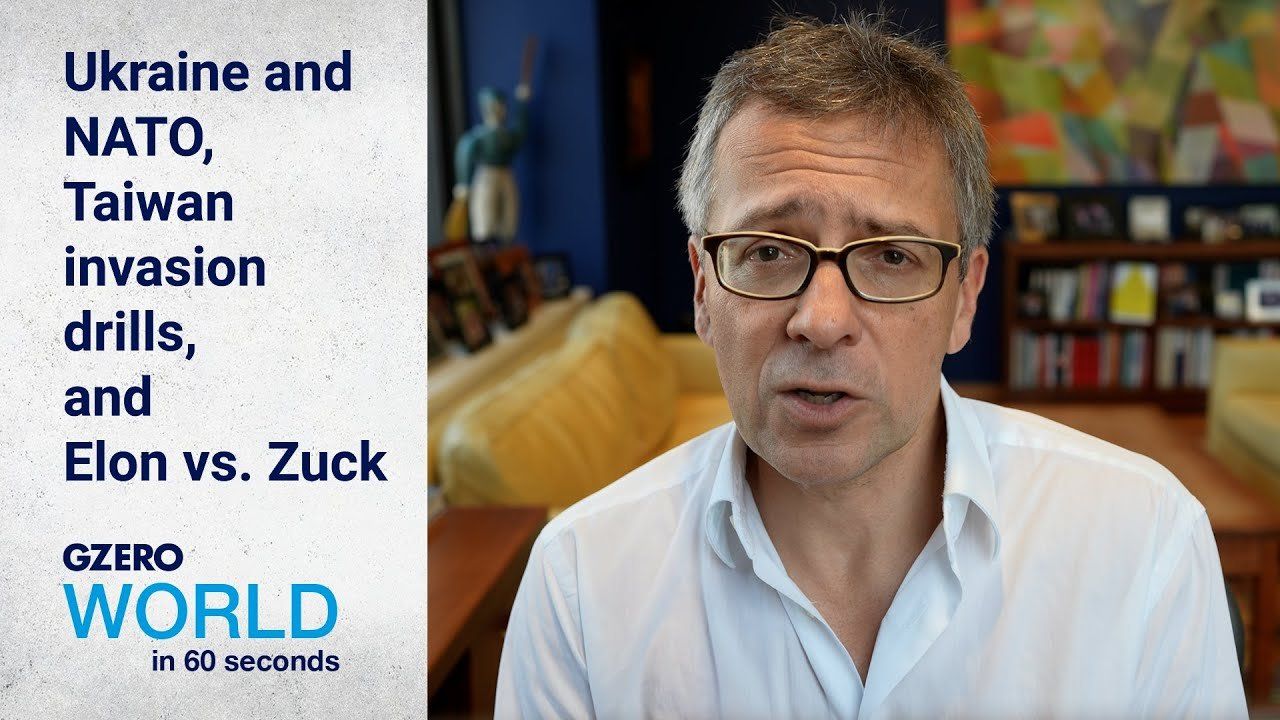
Ian Bremmer shares his insights on global politics this week on World In :60.
Sweden will join NATO. Is Ukraine next?
Well, sure, but next doesn't mean tomorrow. Next means like at some indeterminate point, which makes President Zelensky pretty unhappy and he's made that clear, but he has massive amounts of support from NATO right now, and he needs that support to continue. So, it's not like he has a lot of leverage on joining NATO. As long as the Americans are saying it's not going to happen, that means it's not going to happen. No, the real issue is how much and how concrete the multilateral security guarantees that can be provided by NATO to Ukraine actually turn out to be. We will be watching that space.
Is Taiwan readying itself for an invasion by conducting its biggest evacuation drills in years?
I wouldn't say readying for an invasion. I would say, you know, sort of preparing for every contingency, and that means taking care of your people. I mean, the Americans weren't readying themselves for nuclear Armageddon by doing drills in classrooms and by, you know, having bomb shelters, but they had them because we were in a world where nuclear war was thinkable. Well, we're in a world where Chinese, mainland Chinese invasion of Taiwan is very unlikely, but thinkable. And of course, the Taiwanese have to think about it a lot more than you and I do.
Elon vs. Zuck. Thoughts?
Well, my thoughts are mostly about the battle of the social media platforms and the fact that of course you now have the big gorilla in the room with a Twitter competitor. And I've seen it pretty functional for the first several days. Obviously, massive numbers of people are on it, mostly because it's really easy to sign up. They're all coming over from Instagram and it's owned by the same person, by the same shareholders. Unclear to me who's going to win. If I had to bet, I would say that within 6 or 12 months, we're going to have a fragmented social media landscape politically, the way we do blogosphere or cable news, which is, I guess, good for consumer choice, but it's bad for civil society. What else is new?